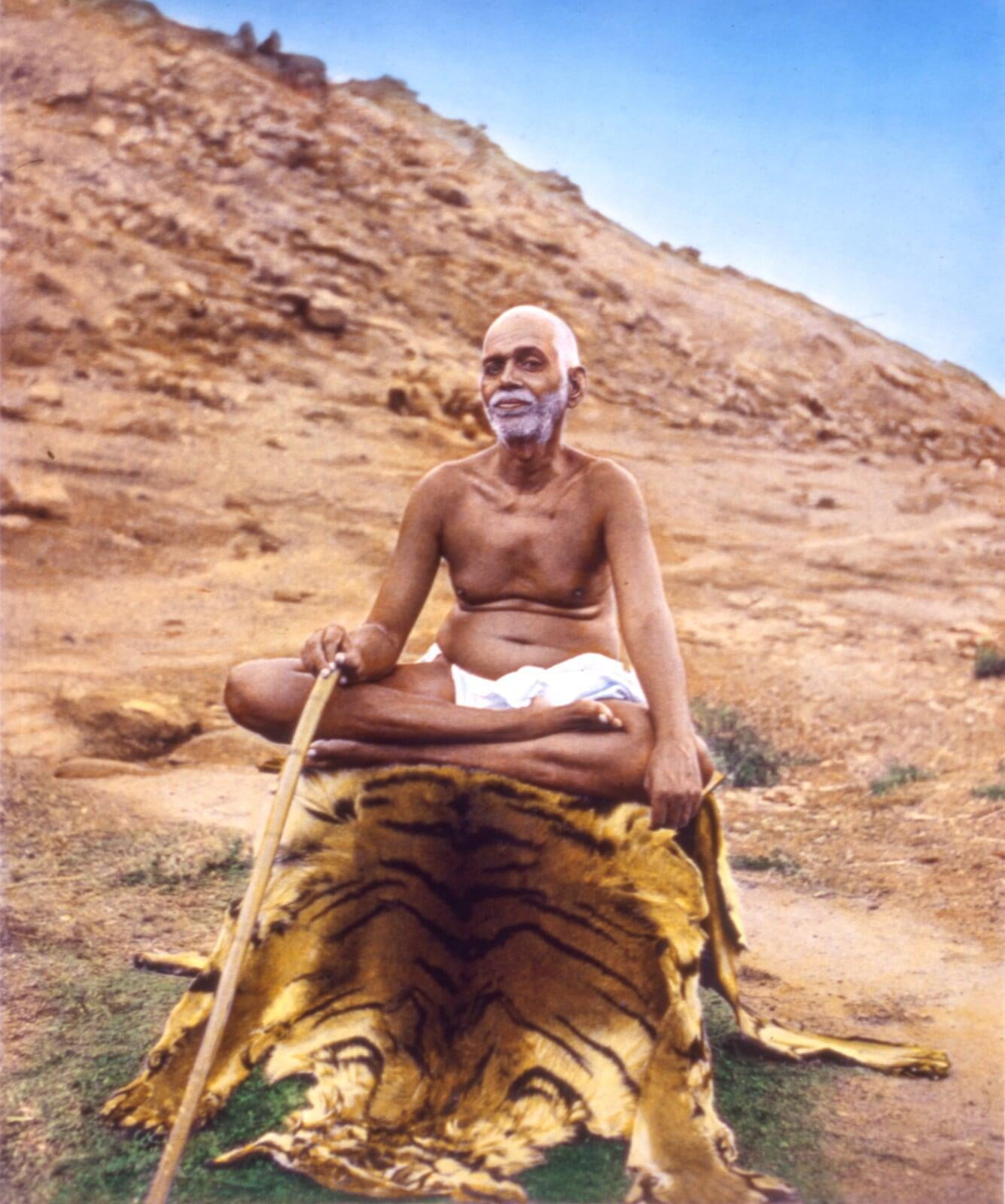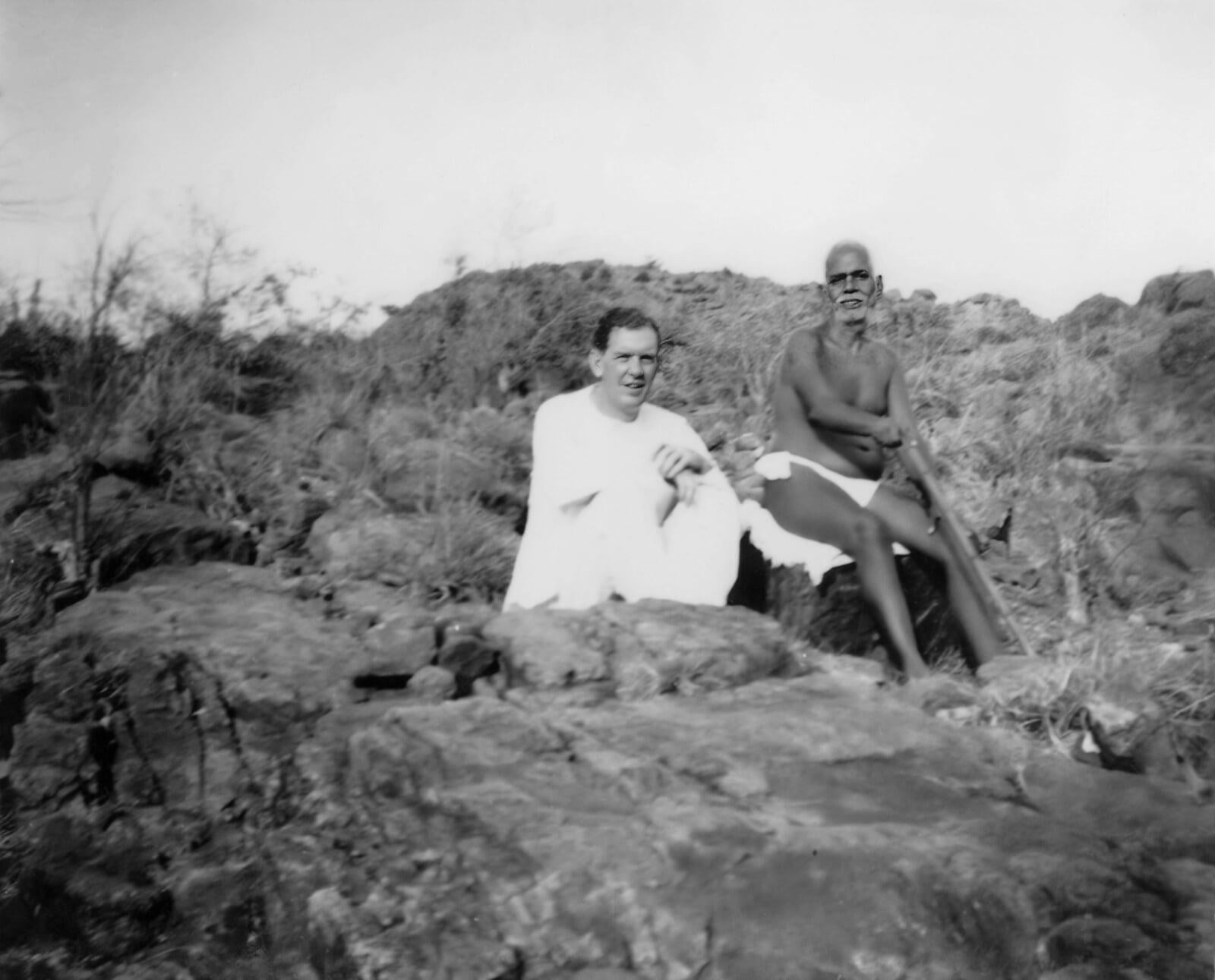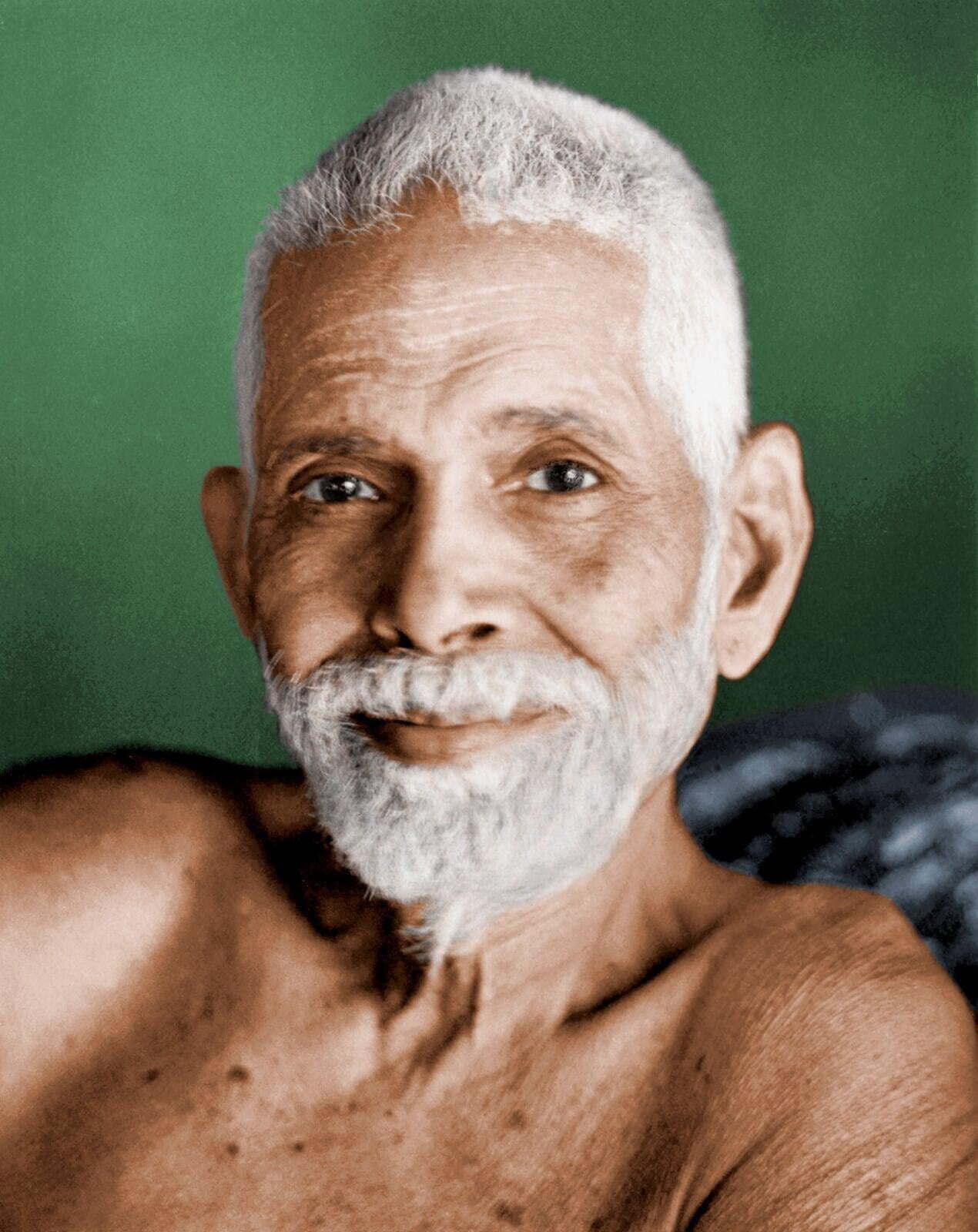Teachings
The upadesa of Sri Bhagavan, that is to say, the guidance or instruction given by Him, was secret in a sense. Although he was accessible to all alike, and although questions were normally asked and answered in public, the guidance given to each disciple was nevertheless intensely direct and adapted to his character. When asked once by Swami Yogananda, a Swami with a large following in America, what spiritual instruction should be given to the people for their uplift, he replied: “It depends on the temperament and spiritual maturity of the individual. There can be no mass instruction.”

Sri Bhagavan was as definite about this as other Masters. Therefore, it was not enough for the sadhaka (aspirant) to know that his teaching was sublime and his presence inspiring; it was necessary to know that he was a Guru giving diksha (initiation) and upadesa (instruction).
However, when a devotee was genuinely distressed and seeking a solution, he would sometimes reassure him in a way that left no room for doubt. An English disciple, Major Chadwick, kept a record of such an assurance given to him in the year 1940:
Bh. Yes.
Ch. He also says that a guru is necessary if one wishes to attain liberation.
Bh. Yes.

Major Chadwick with Sri Bhagavan
Ch. what then must I do? Has my sitting here all these years been just a waste of time? Must I go and look for some Guru in order to receive initiation, seeing that Bhagavan says he is not a Guru?
Bh. What do you think brought you here such a long distance and made you remain so long? Why do you doubt? If there had been any need to seek a guru elsewhere, you would have gone away long ago.
Ch. Then Bhagavan does have disciples! Bh. As I said, from Bhagavan’s point of view, there are no disciples, but from that of the disciple, the grace of the Guru is like an ocean. If he comes with a cup, he will only get a cupful. It is no use complaining about the niggardliness of the ocean; the bigger the vessel, the more he will be able to carry. It is entirely up to him.
Ch. Then to know whether Bhagavan is my Guru or not is just a matter of faith, if Bhagavan will not admit it.
Bh. (Sitting straight up, turning to the interpreter, and speaking with great emphasis.) Ask him: Does he want me to give him a written document?
Professor Venkatramiah records in his diary that he said to Mrs. Piggott, an English visitor, “Realization is the result of the Guru’s Grace more than of teachings, lectures, meditations, etc. These are only secondary but that is the primary and essential cause.”
When asked whether he gave initiation Sri Bhagavan always avoided a direct answer. But the initiation by look was a very real thing. Sri Bhagavan would turn to the devotee, his eyes fixed upon him with blazing intentness. The luminosity, the power of his eyes pierced into one, breaking down the thought-process. Sometimes it was as though an electric current was passing through one, sometimes a vast peace, a flood of light. One devotee has described it: “Suddenly Bhagavan turned his luminous, transparent eyes on me. Before that I could not stand his gaze for long. Now I looked right back into those terrible, wonderful eyes, how long I could not tell. They held me in a sort of vibration distinctly audible to me.” Always it was followed by the feeling, the indubitable conviction, that one had been taken up by Sri Bhagavan, that henceforth he was in charge, he was guiding. Those who knew would perceive when such an initiation took place, but it would usually be inconspicuous; it might happen during the chanting of the Vedas or the devotee might feel a sudden impulse to go to Sri Bhagavan before daybreak or at some time when few or none would be present. The initiation by silence was equally real. It entered into those who turned to Sri Bhagavan in their hearts without being able to go bodily to Tiruvannamalai. Sometimes it was given in a dream, as with Natesa Mudaliar.

